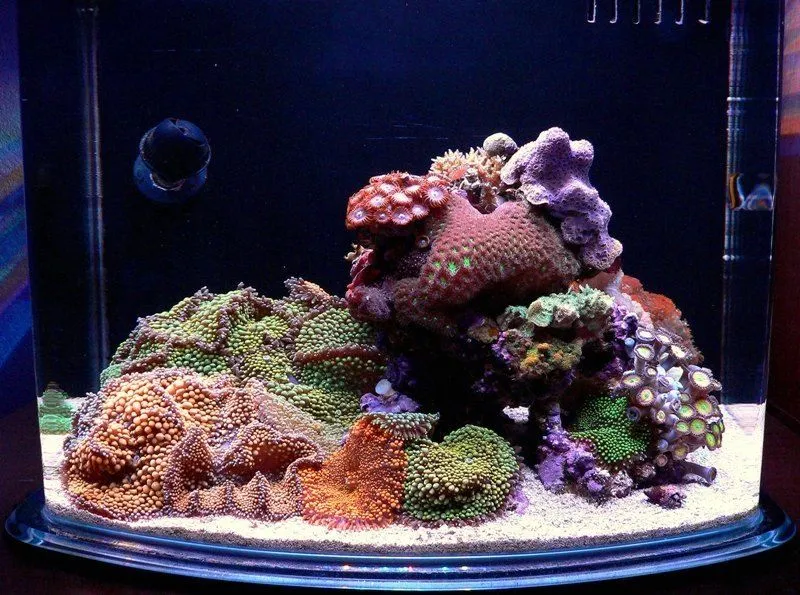Stunning 12-Gallon Reef Tank – Nano sapiens's TOTM | NanoReef

Tank Specifications
Volume: 12 Gallons / 45 Liters
Dimensions (L × W × H):
15.0" ×
15.0" ×
13.0"
38.1cm ×
38.1cm ×
33.0cm
Equipment List
No equipment information available
Frequently Asked Questions
What is the recommended maintenance routine for a nano reef tank?
For a 12-gallon nano reef tank, perform a 5% water change twice a week (totaling 10% weekly). Use a mix of Tropic Marin ‘Classic’ and RedSea ‘Blue Bucket’ for the water change.
How do I remove detritus from my reef tank?
Remove detritus by basting the live rock, using a gravel vacuum weekly, and employing filter socks. Vacuum under the live rock every few months and clean the rear chambers monthly.
How often should I test water parameters, and what should I target?
Test alkalinity twice a week (target 8.0 - 9.0 dKH), specific gravity weekly (target 1.026), calcium monthly (aim for 410-440 ppm), and magnesium also monthly (target 1250-1400 ppm).
What additives do I need to use for my reef tank?
Use 'Kalkwasser' (calcium hydroxide) for calcium dosing, and add iodine (2-3 drops per week) to support coral health.
How do I maintain my auto top-off system?
Check and fill up your auto top-off (ATO) units weekly to ensure that evaporation is compensated regularly.
What maintenance should I perform on my equipment?
Disassemble and clean the return pump every three months, and clean the heater every six months to ensure they are functioning properly.
How often should I feed the fish, and what should their diet consist of?
Feed your fish twice a day using a rotating combination of live, frozen, and dried foods such as Rod's Food, Mysids, Ocean Nutrition Prime Reef Flakes, and garden earthworms once a week.
How should I feed corals in the reef tank?
Feed corals a mixture of Reef-Roids and meaty foods twice a month to promote healthy growth.
What types of fish are suitable for a small nano reef?
In a 12-gallon nano reef, consider hardy fish like Barnacle Blennies, Hasslet's Flaphead Goby, Yellowline Cleaner Goby, and Green Banded Gobies for an interesting community.
Can I introduce multiple species of gobies in a small tank?
You can have multiple gobies in a mature and balanced system, but be cautious as it may not work in a new setup. Make sure to observe their behavior for compatibility.
How do I ensure the corals in my tank thrive?
Regularly maintain water quality parameters, avoid overcrowding, and ensure that there is appropriate water movement and light conditions for the specific coral species you keep.
How can I encourage healthy coral growth in my reef tank?
Engage in weekly cleaning to create a 'mini-cyclone' in the tank with a turkey baster, which helps oxygenate the water and distribute food particles for corals.
What is the best way to handle coral interactions in the tank?
Allow corals to interact naturally. Only intervene if one coral is overwhelmingly damaging another. Prune corals that impede cleaning efforts to maintain tank health.